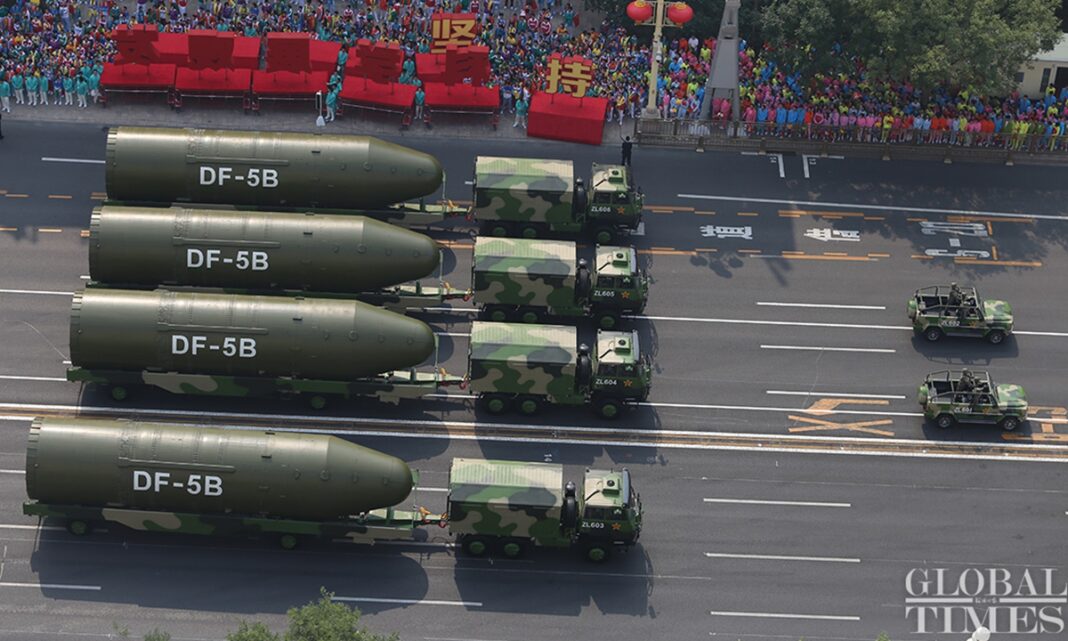Washington D.C., June 24: As per a statement issued by the US State Department on Friday, High-level officials from the United States, Russia, China, the United Kingdom, and France came together in Cairo last week to discuss nuclear non-proliferation.
The meeting, which took place on June 13-14, brought together diplomatic and military representatives from the P-5 countries of the United Nations Security Council to address strategic risk reduction, nuclear doctrines, and policy.
This two-day conference follows a previous working-group-level meeting held in Dubai back in February.
The global community has been increasingly concerned about the growing nuclear proliferation and the modernization of existing nuclear weapons arsenals, particularly by China.
A Pentagon assessment suggests that Beijing could potentially increase its current estimated arsenal of 400 warheads to approximately 1,500 by 2035, as President Xi Jinping’s administration seeks to catch up with Russia and the US.
It is noteworthy that China is not a signatory to any international treaties that limit nuclear weapons arsenals.
Furthermore, only one treaty remains between the US and Russia that limits the number of nuclear warheads, known as New START, which is set to expire in February 2026 if not renewed.
However, both sides have been reluctant to engage in meaningful diplomatic outreach for renewing the treaty.
The Biden administration, recognizing the changing global landscape, unveiled its nuclear defense strategy last October, designating China and Russia as strategic rivals.
Recently, Russia has begun stationing its tactical nuclear assets in Belarus, one of its closest allies, raising concerns among neighboring European countries.
The Nuclear Non-Proliferation Treaty (NPT), which came into effect in 1970, with aim to halt the spread of nuclear weapons-making capability but permitted the five nuclear weapons states (P5) to maintain their nuclear arsenals.
Consequently, there is currently no international treaty with mandatory provisions specifically prohibiting nuclear proliferation by nuclear weapons states.
The global community is increasingly alarmed by the perceived lack of responsible nuclear policies exhibited by these nuclear weapon states.
Against this backdrop, the United States, currently chairing the NPT, is making efforts to establish a rapport with China and Russia on nuclear non-proliferation issues in order to lay the groundwork for future treaties.
The White House recently announced its readiness to engage with Russia and China on nuclear arms control without any preconditions.
However, given the rising tensions between these powers, whether in Ukraine or the South China Sea, the realization of any pact aimed at limiting nuclear proliferation or disarmament is expected to face mountainous challenges.






